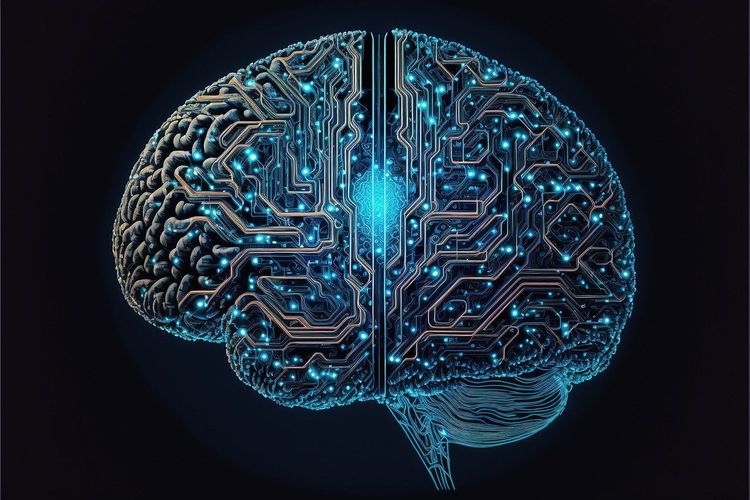Microsoft is making strides to integrate generative AI into Windows and the PCs that run it. During its annual Build developer conference, the tech giant revealed a new category of devices called Copilot+ PCs, alongside innovative AI features like Recall, designed to help users easily locate previously accessed apps and files. Upcoming Microsoft Surface devices promise enhanced performance and a seamless Windows 11 experience bolstered by deeper AI integration.
Here’s a roundup of the most significant announcements made on Monday and Tuesday.
Volumetric Apps
Microsoft is introducing Windows Volumetric Apps, enabling spatially aware, interactive VR experiences on Meta Quest headsets. In partnership with Meta, Microsoft aims to bring Windows 365 and local connectivity to enhance app development for 3D environments. During the keynote, Pavan Davuluri, CVP of Windows and Devices, showcased a 3D view of an Xbox controller, allowing users to manipulate it directly from the Meta Quest 3 headset. Developers can register for a preview to explore Microsoft’s new volumetric API.
Copilot+ PCs
Copilot+ PCs represent Microsoft’s vision for AI-centric, flagship Windows hardware. Each device includes dedicated NPUs to enhance AI capabilities such as Recall, along with a minimum of 16GB RAM and SSD storage. The first models feature Qualcomm’s Snapdragon X Elite and Plus chips, promising up to 15 hours of web browsing and 20 hours of video playback. Intel and AMD are also in collaboration to produce processors for these devices, which will be offered by manufacturers such as Acer, Asus, Dell, HP, Lenovo, and Samsung. Prices for Copilot+ PCs start at $999, with some available for preorder now.
Surface Pro and Surface Laptop
The newly launched Surface devices, including the Surface Laptop and Surface Pro, emphasize performance and battery life. The updated Surface Laptop comes in 13.8- and 15-inch models with a sleek design and thinner bezels, boasting up to 22 hours of battery life and performance up to 86% faster than its predecessor, Surface Laptop 5. It also features Wi-Fi 7 and a haptic feedback touchpad.
Meanwhile, the new Surface Pro claims up to a 90% speed increase over the previous generation, featuring an OLED HDR display, Wi-Fi 7 (with optional 5G), and an enhanced ultrawide front-facing camera. The detachable keyboard now has haptic feedback and added carbon fiber for durability.
Recall
The innovative Recall feature within Windows 11 will allow users to retrieve apps and content accessed weeks or months prior. For instance, it can assist in locating past Discord chats. Users will navigate through Recall’s timeline, making it easier to revisit recent work, including drilling down through PowerPoint files for relevant information.
Microsoft notes that Recall can create connections between colors, images, and more for intuitive natural language searches. User data linked to Recall remains private and on-device, ensuring it’s not used for training AI models. As Microsoft states, “Your snapshots are yours; they stay locally on your PC,” with options to delete or manage them easily.
Advanced Image Editing and Live Translation
Windows is now infused with advanced AI features, many of which are exclusive to Copilot+ PCs. The newly introduced Super Resolution can automatically enhance old photos, and Copilot will offer creative composition suggestions based on image analysis. The Cocreator feature allows users to generate and modify images based on their drawings.
Additionally, Live Captions with live translations will convert any audio passing through a PC into the user’s preferred language, initially supporting around 40 languages. A new Edge feature will also provide real-time video translations for popular platforms like LinkedIn and YouTube.
Team Copilot and Extensions
Team Copilot enhances Microsoft's suite of generative AI tools by integrating with Teams. This AI feature assists in managing meeting agendas and can co-author notes. Its functionality extends to Microsoft's Loop and Planner, facilitating task assignments, tracking, and deadline notifications.
In related news, Microsoft has launched (in private preview) Copilot Extensions, enabling developers to augment GitHub’s Copilot tool with third-party applications. Initial launch partners include DataStax, Docker, and LambdaTest, with the extensions available in the GitHub Marketplace.
Windows Copilot Runtime
The Windows Copilot Runtime fuels capabilities like Recall and Super Resolution, comprising around 40 generative AI models. This innovative layer allows AI-powered apps — including third-party options — to function offline, utilizing a semantic index that is local to the device. Developers will gain access to this toolkit in June.
Microsoft has also announced that CapCut, a popular video editing application, will use the Windows Copilot Runtime for enhanced AI capabilities. Additionally, Meta plans to incorporate Studio Effects into WhatsApp, improving video call features.
Upgraded Bot Builders
Azure AI Studio, part of Microsoft’s Azure OpenAI Service, will allow developers to create applications with pay-as-you-go inference APIs. Dubbed “model-as-a-service,” this feature will initially include models from Nixtla and Core42.
In the Copilot Studio product suite, Microsoft is introducing Copilot agents — AI bots designed to manage tasks tailored to specific roles. These agents can navigate workflows and adapt based on user feedback.
Snapdragon Dev Kit
A new developer kit from Qualcomm facilitates app creation for Arm-powered Copilot+ PCs. Priced at $899.99, the Snapdragon Dev Kit is compact yet powerful, housing Qualcomm’s Snapdragon X Elite chip, 32GB of RAM, and 512GB of storage. It supports Wi-Fi 7 and Bluetooth 5.4, capable of driving up to three 4K monitors simultaneously.
Phi-3
Microsoft has enriched its generative AI model range with Phi-3-vision, capable of general visual analysis, including image and chart interpretation. This model is optimized for mobile use and is currently in preview, alongside previously announced text-only models, which are now generally accessible.
Partnership with Khan Academy
Microsoft has partnered with Khan Academy to provide cloud compute resources, enabling free access to AI-powered tools for U.S. educators. Both organizations aim to enhance math tutoring applications through generative AI technology.
For ongoing updates and insights, don’t miss our AI newsletter — sign up to receive it in your inbox starting June 5.







